Missing Yorkshire soldiers laid to rest more than a century after their deaths in First World War
Nine men who had fallen during heavy fighting around the town of Ypres were buried alongside their comrades yesterday after extensive research revealed who they are.
Among them a tram conductor from Eston, a young soldier from Pateley Bridge, and a Yorkshire farm labourer. Their bodies had lain undiscovered until three years ago.
Advertisement
Hide AdAdvertisement
Hide AdAs they were buried at Belgium's Tyne Cot Cemetery in a moving ceremony with full military honours, their surviving family members laid wreaths in tribute.
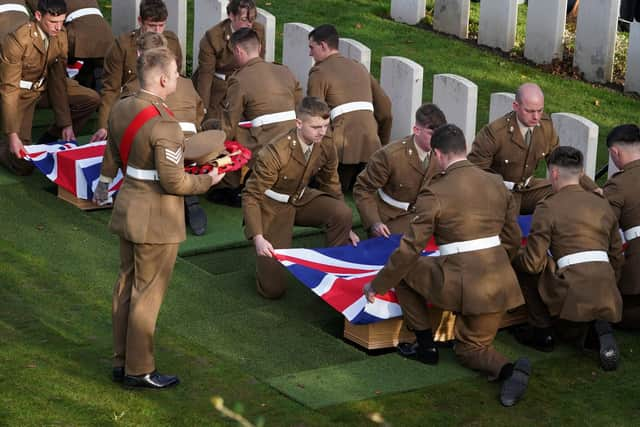

To Steven Willis-Feasby, whose great-uncle Sgt Thomas Feasby of Eston was among the fallen, this was an emotional moment. Until now, he said, the family had never known what had happened to him.
"I'm privileged that I've come here to represent our family," he said. "He's back with us now."
It was three years ago that the remains of eight men were first discovered in De Reutel in Belgium during civil engineering works, while those of a ninth were found nearby.
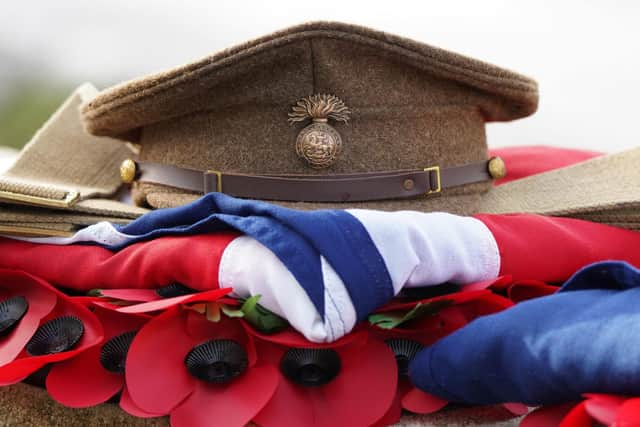

Advertisement
Hide AdAdvertisement
Hide AdLike so many who died in the First World War, their bodies had been missing for a century, but extensive research led experts to identity almost all.
The team, known as the 'war detectives' from the Ministry of Defence's Joint Casualty and Compassionate Centre (JCCC), was able to find small clues in the belongings they carried, tracking down surviving family members to confirm findings through DNA.
It is believed that seven of the nine men served together in 11th Battalion, Northumberland Fusiliers, and died within days of each other during the bloody Battle of Passchendaele in October 1917.
An eighth casualty, closely linked, could not be identified by name but has been honoured as an "Unknown Soldier of the Northumberland Fusiliers".
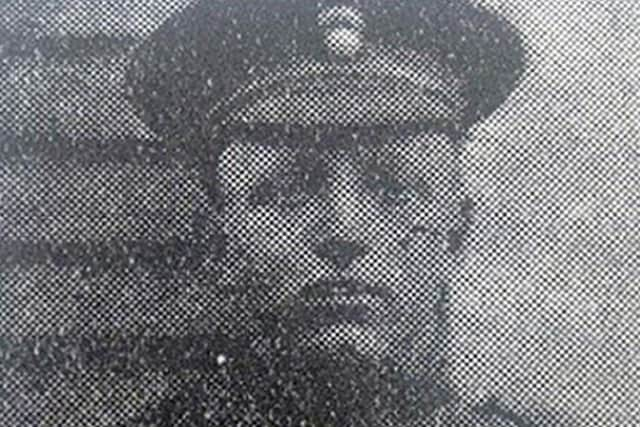

Advertisement
Hide AdAdvertisement
Hide AdThe final serviceman was buried as an "Unknown Soldier of the Great War".
Burial
The Duke of Kent was in attendance yesterday as they were laid to rest, while members of The 1st Battalion of the Royal Regiment of Fusiliers honoured the fallen with a gun salute.
What started as a grey and rainy morning broke into sunshine as the coffins were brought in, draped in Union flags and with full military honours.
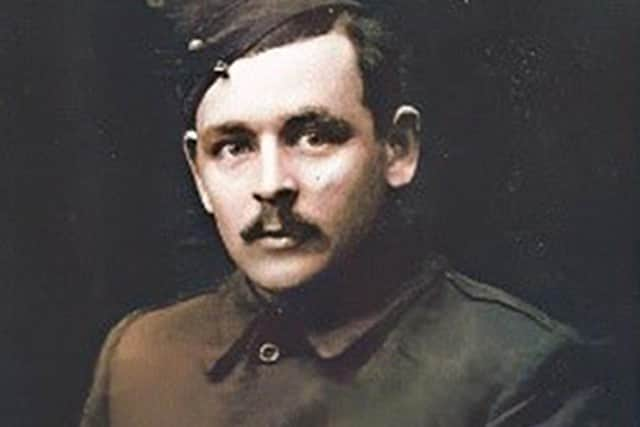

Leading the service, reverend Gary Watt paid tribute to the nine men who gave their lives over a century ago.
Advertisement
Hide AdAdvertisement
Hide AdHe said: “Today we remember with thanksgiving these brave men whom, alongside so many others, answered the call of their country, served with honour and gave their lives in the service of their nation.
“In so doing let us commit ourselves anew to remember their courage. For by so doing we honour their memory and we reflect upon that sacrifice.”
Soldiers
Tens of thousands of soldiers lost their lives in intensive fighting on the Western Front at Ypres and Passchendaele, and many of them have never been found.
Among those laid to rest yesterday were a keen poet, a steelworker and a father-of-four. The seven identified servicemen are:
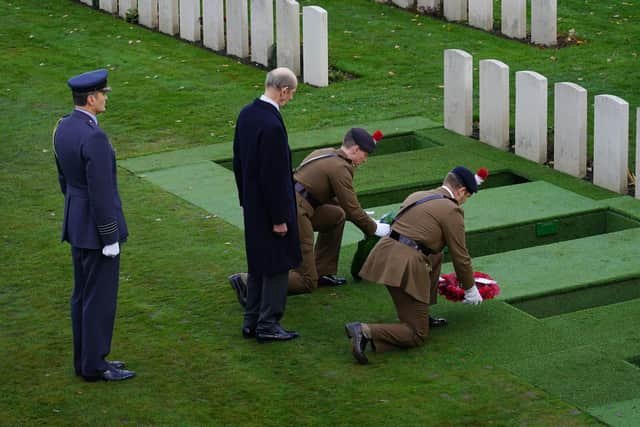

Advertisement
Hide AdAdvertisement
Hide AdSergeant Thomas Feasby. Born in Eston in Yorkshire, he was the son of Joseph and Catherine Feasby. He and his brother George worked as tram conductors before he later moved on to work at a steelworks. He died age 32.
Lance Corporal Stanley Blakeborough. Born in Pateley Bridge in Yorkshire, he was the son of Harry and Mary Blakeborough, and had five brothers and two sisters. Two of his brothers, Charles and Donald, also fought during the First World War. Stanley died age 21 and his brother Donald was killed less than three months later.
Private Harry Miller. Born in Cockerton, Co Durham, he was the son of James and Anne Miller, and had three brothers and four sisters. Harry married Melita Florence Birkett on May 22 1909 and had four children: Annie, James, Minnie and George. His family later moved to Burton Leonard, North Yorkshire, where he worked as a farm labourer. He died age 28.
2nd Lieutenant Leslie Wallace Ablett. Born in Manchester, he was the son of Joseph and Caroline Ablett, and brother to Frederick. By 1911 his family had moved south and was living in Streatham, London. He was described as “bright, cheerful and of good tone”, and was also a keen poet and writer. He died age 20.
Advertisement
Hide AdAdvertisement
Hide Ad2nd Lieutenant Edward Douglas Bruty. Born in Dulwich in Surrey, now south London, he was the son of William and Edith Bruty, and had four brothers and four sisters. He worked as a railway clerk and enlisted in September 1914. He died age 21.
Private Joseph Patrickson MM. Born in Gateshead, Tyne and Wear, he was the son of Robert and Lucy Patrickson, and had two brothers and six sisters. Although his military records do not survive, it is known that he was awarded the Military Medal for his bravery during the fighting in October 1917. He died age 24.
Private Arnold Sanderson MM. Born in Darlington, Co Durham, he was the son of Thomas and Emily Sanderson, and had six sisters. He was awarded the Military Medal for his bravery during the fighting in October 1917 whilst working as runner for the officers. A letter written to his mother stated that he was thought of a great deal by the officers and men. He was described as a good soldier who always did his duty. He died age 26.
The eighth casualty – closely linked with the seven named servicemen – could not be identified by name but was honoured as an “Unknown Soldier of the Northumberland Fusiliers”.
Advertisement
Hide AdAdvertisement
Hide AdThe final servicemen was buried as an “Unknown Soldier of the Great War”.
__________________________________________________________________________
Support The Yorkshire Post and become a subscriber today. Your subscription will help us to continue to bring quality news to the people of Yorkshire. In return, you'll see fewer ads on site, get free access to our app and receive exclusive members-only offers. Click here to subscribe.
